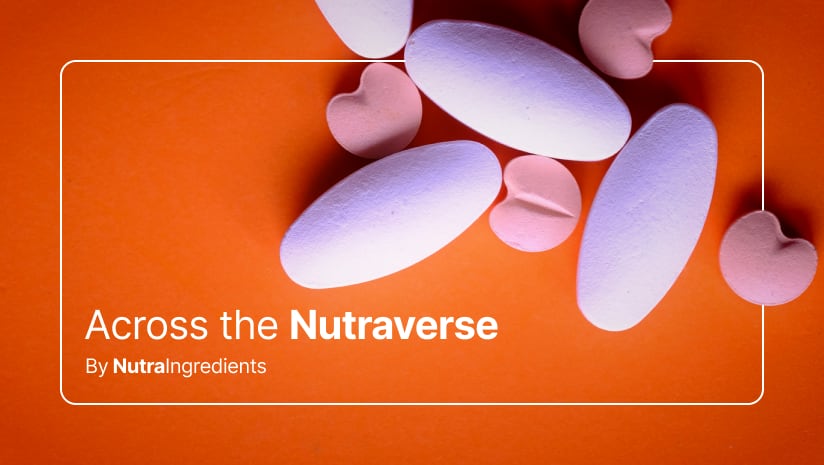Last week’s headlines included news that sales of US herbal supplements reached a new record in 2024, Holland & Barrett rollout of a new beauty transformation, and the implications for New Zealand’s new export exemptions
US herbal supplements sales hit a record $13.2 billion in 2024
Sales of herbal supplements in the United States increased by 5.4% in 2024 to reach a record $13.23 billion, according to the American Botanical Council’s latest Herb Market Report.
The growth corresponded to an additional consumer spend of $680 million year-on-year. This growth was lower than the average annual increases of 8.2% from 2015 to 2019 but represents the second consecutive year of growth following a 1.9% contraction in 2022, following the COVID-19 pandemic.
“Strong sales of supplements marketed for cardiovascular and cognitive health reflect ongoing consumer interest in healthy aging, while rising interest in versatile ingredients like algae and mushrooms shows how convenience and broad wellness appeal are shaping purchasing decisions,” said Tyler Smith, managing editor of HerbalGram and lead author on ABC’s annual Herb Market Reports since 2014.
The top five sellers in the mainstream channel were: Psyllium ($289.5 million in sales, -2.3% from 2023), elder berry ($145.2 million, -21%), ashwagandha ($144.5 million, +13.8%), turmeric ($141.8 million, -2.9%), and beet root ($117 million, +67.7%).
The top five sellers in the expanded natural channel were: Turmeric ($37.1 million, -1.7%), mushrooms (other) ($27.6 million, +14.4%), CBD ($26.0 million, -17%), elder berry ($22.8 million, -7.8%), and ashwagandha ($21.2 million, +6.0%).
Holland & Barrett pilots ingestible beauty focus with 7% sales uplift
UK wellness retailer Holland & Barrett has unveiled a new beauty-from-within strategy focused on wellness and efficacy.
The retailer is integrating ingestible supplements like collagen into its beauty offering, and introducing a curated range of high-performance beauty products, including new brands such as Cetaphil, Aveeno and Noughty.
A six-store pilot saw a 7% uplift in beauty sales between June and August 2025, reported the retailer, and a rollout to larger city stores is planned for 2026, with further innovation and partnerships to follow.
“We know our customers are looking for beauty solutions that deliver real results, are backed by science and align with their lifestyle and values,” said Vicky Kelly, category director of beauty at Holland & Barrett.
“To meet these expectations, we’ve embraced a new inside-out approach, which combines high-quality topical products with proven ingestible supplements such as collagen to support skin and hair health from all angles.”
NZ export exemption rules give only “limited benefits” for supplements - expert
New Zealand companies exporting dietary supplements and food are exempted from certain domestic labeling and composition rules from September 25. However, these are not enough to boost supplements exports, according to Samantha Gray, government affairs director at industry body Natural Health Products NZ (NHPNZ).
While the exemption policies have loosened labeling and composition requirements for dietary supplement exports, they still do not address the elephant in the room - which is allowing dietary supplements to make therapeutic claims, Gray said.
Under the existing Dietary Supplements Regulations 1985, natural health products made in New Zealand, including dietary and health supplements, are not allowed to make therapeutic claims.
Dietary supplements can only make therapeutic claims if they were permitted by the Medicines Act 1981, according to the Dietary Supplements Regulations 1985.
The policy applies even if the products are bound for export.
“For dietary supplements, the benefits are very limited with these new exemption regulations. These regulations were designed predominantly to deal with export exemptions for general foods,” Gray said.
For years, the New Zealand natural health products industry has urged the government to update its natural health products regulations, and to allow health claims.
Being able to make health claims could help boost exports. Industry body Natural Health Products NZ (NHPNZ) believes a more favorable regulatory regime could double the country’s exports worth $650m within five years.
“Health claims are the major consumer purchasing driver for dietary supplements,” said Gray. “There needs to be a next piece of work done, so that New Zealand exports can make health claims permitted in other countries, because at the moment we can’t do that.”




